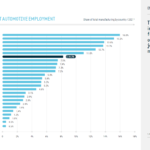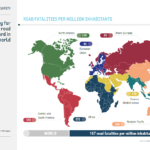Thousands of public companies trade on the markets worldwide. In the US, retail investors in the millions are “owners” of listed companies holding equity in the form of shares. However though a public corporation may have millions of small shareholders, the shareholders themselves do not have control anything the company does. That power lies with the managers of the corporations who make day-to-day decisions on everything from how much money the firm spends of marketing, how much money is paid to workers including themselves, what products to make, etc. Occasionally individual investors may be asked to vote on certain issues such as if the directors of the board should get a 10% or 20% pay raise but those are all marginal issues. So in a nutshell, though a company may have millions of shareholders in reality it is owned by no one – hence the term “ownerless corporation”. In these types of corporations no one can be held accountable and when one fails, the managers escape scot-free with golden parachutes and other perks and everyone else including shareholders is left high and dry.
I just came across an article that discussed the fraud committed by Volkswagen(VLKAY) and the problems with public corporations. From the article:
We had a Volkswagen Golf until we had kids. Then we had a Passat – we still drive that ten-year-old Passat. But on the school run this week, I treated it with rather more suspicion than affection. Ask me if I trust corporate management this year and the answer will be “rather less than I did last year”. There’ll be a lot of people feeling the same about their (mostly newer) Passats — and wondering how it is that things so often go so very wrong inside the world’s biggest listed companies.
The answer, I think, comes down to two things. The first is the blurred lines of ownership of listed companies. Back in the 1930s, people worried that the rise of the small shareholder was creating “ownerless corporations”, companies that would end up being run for the ends of their managers rather than those of their shareholders.
Andy Haldane, chief economist at the Bank of England, gave an interesting talk on the subject this year. He noted that the response to these worries has been to legally hardwire shareholder primacy into “companies’ statutory purposes”: managers are obliged to act in the interests of shareholders. That’s nice, but it hasn’t worked very well.
Why? The “co-ordination problem” among shareholders remains. Most have only modest stakes in a company, so they have more incentive to sell than to take corporate action when they aren’t happy. That’s particularly the case now that so few shares in the UK are held by individuals (it was 50% in the 1960s, it is 10% today).
Most of us invest via intermediaries, so we know nothing of the companies in which we invest. And if the technical owners of a company are just thousands of inert fund managers who aren’t exercising their rights of ownership over that company, who effectively owns it? Is it the shareholders or the management, who make all the decisions about how the assets are used? And if it is the latter, how can we be surprised when they use those assets to fly their kids in a private jet to the company-owned hunting lodge?.
The classic response to this agent/principal problem has been an attempt to align the interests of shareholder and manager by making managers into huge shareholders. In 1994, notes Haldane, US chief-executive compensation was one-third stock and stock options. By 2006, that had risen to 50%. This doesn’t work either — or help with the private jet problem.
If you use the jet for your kids, 100% of the benefit accrues to you. If you don’t, the £100,000 odd boost to profits is shared by everyone. No incentive there. It also opens up the question of which shareholders managers are best serving: is it the long-term holders (the savers of the world), or those who get more shares in their incentive deal if management pushes the share price or some other metric above a random-seeming target on some random short-term date? Quite.
This brings me on to the second reason why good companies turn bad: money. You could argue that VW, having one huge family shareholder, is mostly immune from the agent/principal problem. You can’t argue it has been immune from the money problem. Martin Winterkorn, the former chief executive, earned nearly €16m last year. And he is leaving the company with a €28.5m pension. The “align the interests” nonsense of the last few decades has changed the amount of money that top chief executives can earn from “a lot” to “enough to transform the fortunes of a family for generations to come”. This matters.
Source: Why the VW scandal happened, and why it will happen again by Merryn Somerset Webb,MoneyWeek
The key takeaway for an individual investor from the rampant problems affecting “ownerless corporations” is to diversify their investments across asset class, industries and watch the companies closely at least occasionally.



